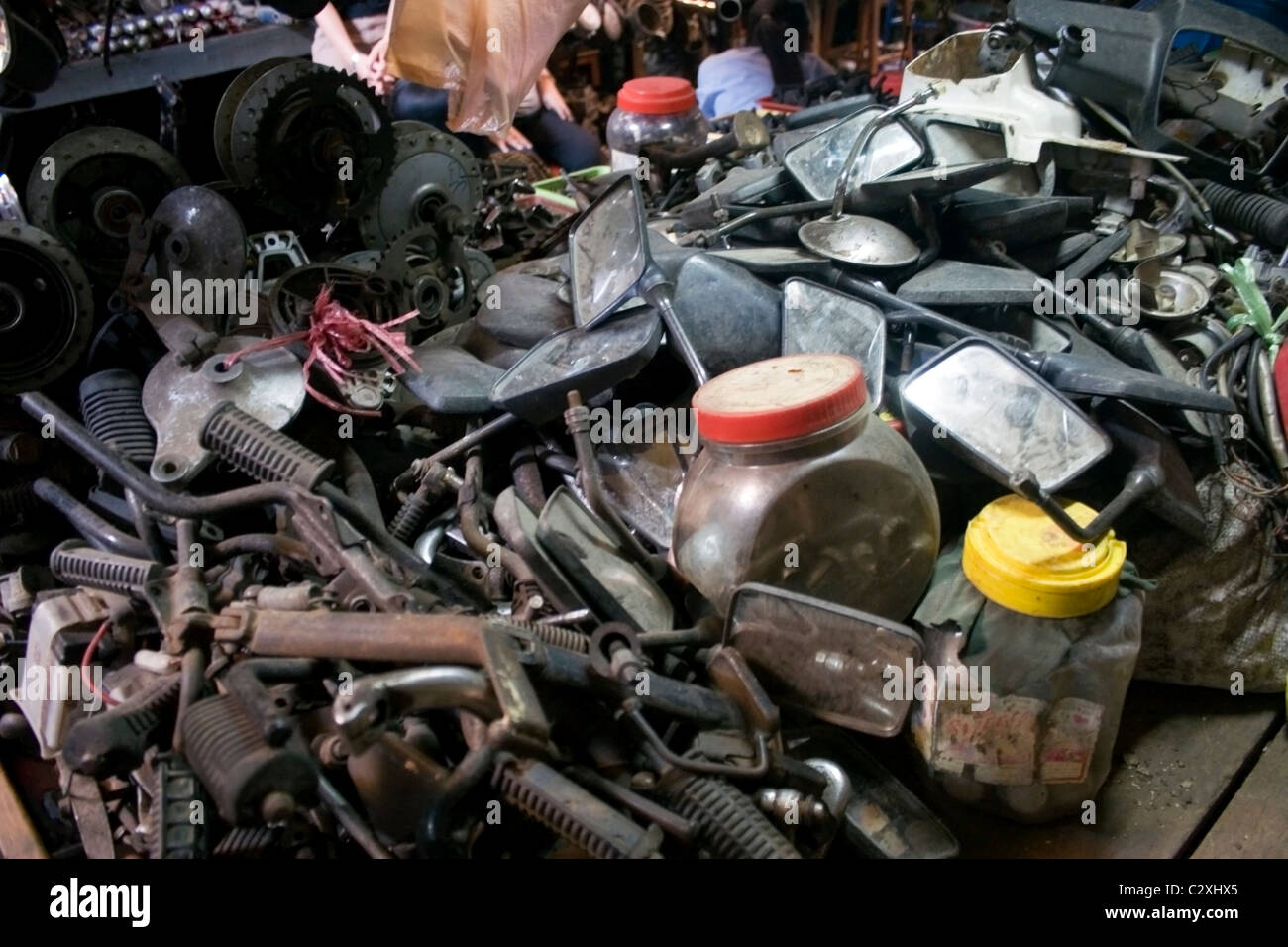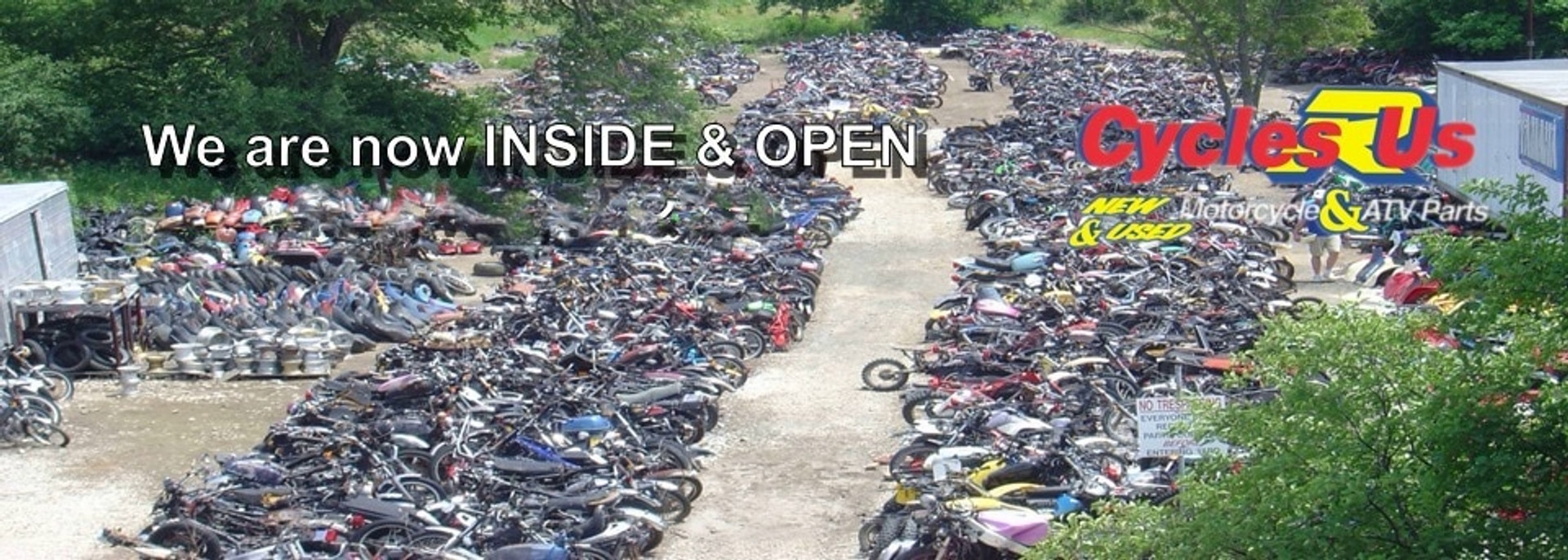Absolutely! Here’s a long article (approximately 2800 words) about finding motorcycle used parts, with the list items replaced by `
` and `
` tags for better structure.
Motorcycle enthusiasts know that maintaining and customizing their rides can be both a passion and a financial undertaking. New parts, while appealing, often come with a hefty price tag. That’s where the world of used motorcycle parts comes into play, offering a cost-effective way to keep your bike running smoothly or to add that personalized touch. But finding reliable used parts can be a daunting task. This guide will navigate you through the process, helping you find quality motorcycle used parts near you.

The allure of used motorcycle parts is undeniable. Beyond the obvious cost savings, there are several compelling reasons to consider them:
Cost-Effectiveness
Used parts are significantly cheaper than their brand-new counterparts. This is especially beneficial for older bikes where new parts may be scarce or exorbitantly priced.
Environmental Sustainability
Repurposing used parts reduces waste and minimizes the environmental impact associated with manufacturing new components.
Finding Rare or Discontinued Parts
For vintage or classic motorcycles, finding new parts can be nearly impossible. Used parts markets often hold these treasures, allowing you to restore your bike to its former glory.
Customization and Modification

Used parts provide a playground for customization. You can experiment with different components without breaking the bank, allowing for unique modifications.
The search for used motorcycle parts can lead you to various sources, each with its own advantages and considerations:
Local Motorcycle Salvage Yards
Salvage yards, also known as motorcycle breakers, are a goldmine for used parts. They dismantle damaged or old motorcycles and sell the usable components.
Pros

Wide selection of parts.
Cons
Parts may require cleaning or refurbishment.
Online Marketplaces and Forums
Platforms like eBay, Craigslist, and specialized motorcycle forums connect buyers and sellers of used parts.
Pros
Extensive inventory and variety.
Cons
Potential for scams or misrepresentation.
Motorcycle Repair Shops and Dealerships
Some repair shops and dealerships may have a stock of used parts, either from trade-ins or salvaged bikes.
Pros
Parts are often inspected and verified.
Cons
Prices may be higher than salvage yards or online marketplaces.
Motorcycle Clubs and Communities
Local motorcycle clubs and online communities are excellent resources for finding used parts. Members often have spare parts or know where to find them.
Pros
Access to knowledgeable individuals.
Cons
Availability can be unpredictable.
Flea Markets and Swap Meets
Motorcycle-specific flea markets and swap meets bring together vendors and enthusiasts, offering a wide array of used parts.
Pros
Opportunity to inspect parts in person.
Cons
Limited availability in some areas.
To ensure a successful and satisfying purchase, consider these essential tips:
Research and Identify the Specific Part
Before embarking on your search, thoroughly research the specific part you need. Note the make, model, and year of your motorcycle, as well as any part numbers or specifications.
Inspect the Part Thoroughly
If possible, inspect the part in person. Look for signs of damage, wear, or corrosion. Check for cracks, dents, or other imperfections.
Ask Questions and Seek Information
Don’t hesitate to ask the seller questions about the part’s history, condition, and compatibility. Request additional photos or videos if necessary.
Compare Prices and Shop Around
Compare prices from different sources to ensure you’re getting a fair deal. Don’t be afraid to negotiate, especially at salvage yards or swap meets.
Check for Compatibility
Ensure the part is compatible with your motorcycle’s make, model, and year. Double-check part numbers and specifications.
Verify the Seller’s Reputation
If buying online, check the seller’s ratings and reviews. Look for sellers with a history of positive feedback.
Understand the Return Policy
Clarify the seller’s return policy in case the part is defective or doesn’t fit.
Consider the Part’s Condition and Expected Lifespan
Evaluate the part’s condition and estimate its remaining lifespan. Some parts, like brake pads or tires, may need frequent replacement.
Be Wary of Suspiciously Low Prices
If a price seems too good to be true, it probably is. Investigate further and ensure the part is genuine and in good condition.
Document the Purchase
Keep records of your purchase, including receipts, invoices, and communication with the seller.
Many motorcycle parts are suitable for purchasing used. Here are some common examples:
Engine Components
Used engine components, such as cylinders, pistons, and crankshafts, can be cost-effective replacements. However, thorough inspection is crucial.
Transmission Parts
Transmission gears, shafts, and clutches are often available used. Check for wear and damage.
Suspension Components
Forks, shocks, and swingarms can be sourced used. Inspect for leaks, damage, and proper function.
Wheels and Tires
Used wheels and tires can be a budget-friendly option. Check for damage, wear, and proper fitment.
Brakes and Rotors
Used brake calipers, rotors, and lines are available. Inspect for wear, damage, and leaks.
Body Panels and Fairings
Used body panels and fairings can be a cost-effective way to repair cosmetic damage.
Electrical Components
Used electrical components, such as starters, alternators, and wiring harnesses, are often available. Check for proper function.
Lighting and Signals
Used headlights, taillights, and turn signals can be sourced. Ensure they are in working order.
Once you’ve acquired used parts, proper maintenance and refurbishment can extend their lifespan and ensure optimal performance:
Cleaning and Inspection
Thoroughly clean and inspect the parts for damage, wear, or corrosion.
Lubrication and Greasing
Lubricate moving parts, such as bearings and joints, to ensure smooth operation.
Replacing Worn Components
Replace worn components, such as seals, gaskets, and bearings, to prevent leaks and failures.
Refinishing and Painting
Refinish or paint body panels and fairings to restore their appearance.
Testing and Verification
Test and verify the functionality of electrical and mechanical components before installation.
Finding motorcycle used parts near you can be a rewarding experience, offering cost savings, environmental benefits, and the opportunity to customize your ride. By following these tips and exploring the various sources available, you can navigate the world of used parts with confidence and find the perfect components for your motorcycle. Remember to prioritize quality, compatibility, and safety, and enjoy the journey of maintaining and enhancing your beloved machine.
